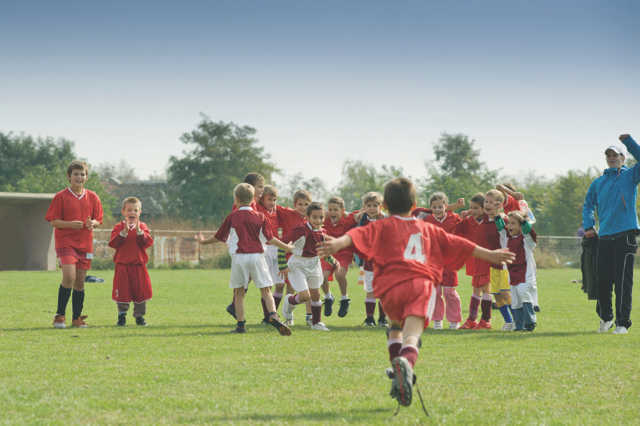
Exercise may reduce the chances of obesity, which is becoming more common in children. It may also reduce the risk of diabetes, a disease that can be associated with a lack of exercise and poor eating habits. Exercise also helps children build social skills and provides themm with a general sense of well-being. Sports participation is an important part of learning how to build team skills.
As a parent, it is important for you to encourage your children to be physically active. It’s also important to match your child to the sport, and not push him or her too hard into an activity that he or she may not like or be capable of doing. Teach your children to follow the rules and to play it safe when they get involved in sports, so they’ll spend more time having fun in the game and be less likely to be sidelined with an injury. You should be mindful of the risks associated with different sports and take important measures to reduce the chance of injury.
Tips for Preventing Sports Injuries
Childhood sports injuries may be inevitable, but there are some things you can do to help prevent them.
- Physios will have some good training tips and be able to give athletes some ideas for avoiding injuries; for instance, recommending specific exercises, like certain stretching or strengthening activities, that help prevent injuries. A Physiotherapist also can identify risk factors that are linked to specific sports. Advice like this will make kids better, stronger athletes.
- Make sure your child uses the proper protective gear, such as mouth guards or eye protection for a particular sport. This may lessen the chances of being injured.
- Warm up Before Exercise. This can help minimize the chance of muscle strain or other soft tissue injury during sports. Warm up exercises make the body’s tissues warmer and more flexible.
- Wear sunscreen and a hat (where possible) to reduce the chance of sunburn, which is actually an injury to the skin.
- Stay properly hydrated while playing.
- Drinking water is the best choice. The standard recommendation of water intake for children is at least 6-8 glasses (1.5 – 2 litres) a day, drunk regularly throughout the day, more when they are playing sports.
- Know the warning signs of a serious injury
- Treat Injuries with R.I.C.E.
- Rest. Reduce or stop using the injured area for 48 hours. If you have a leg injury, you may need to stay off of it completely.
- Ice. Put an ice pack on the injured area for 20 minutes at a time, 4 to 8 times per day. Use a cold pack, ice bag, or a plastic bag filled with crushed ice that has been wrapped in a towel.
- Compression. Compression of an injured ankle, knee, or wrist may help reduce the swelling. These include bandages such as elastic wraps, special boots, air casts and splints.
- Elevation. Keep the injured area elevated above the level of the heart. Use a pillow to help elevate an injured limb.
